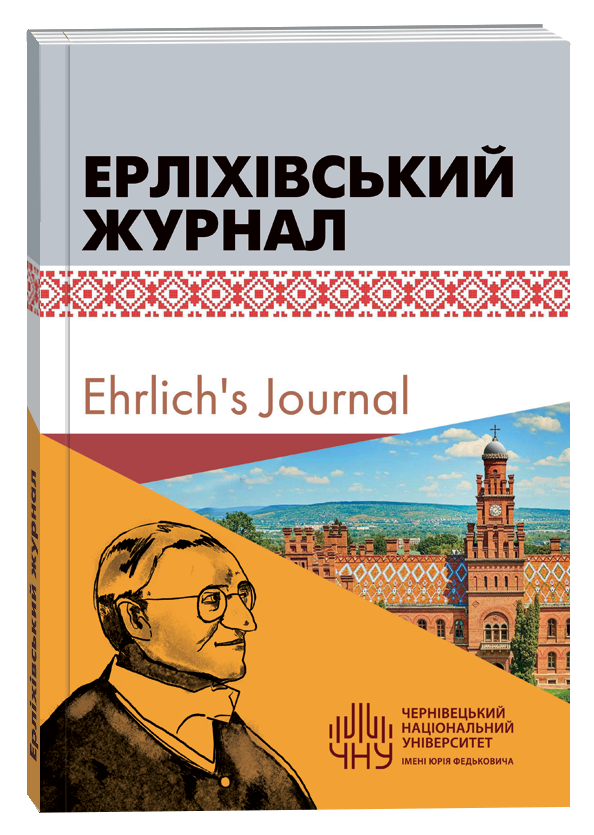СВОБОДА ВИРАЖЕННЯ ПОЛІТИЧНИХ ПОГЛЯДІВ В УМОВАХ СОЦІАЛЬНОЇ ПОЛЯРИЗАЦІЇ: ПСИХОЛОГО-ПРАВОВІ АСПЕКТИ МАСОВИДНОЇ ПОВЕДІНКИ
DOI:
https://doi.org/10.32782/ehrlichsjournal-2025-12.08Ключові слова:
свобода вираження політичних поглядів, права людини, конституційне право, свобода, демократія, масовидна поведінка, правова поведінка, політичний дискурс, передвиборча політична кампаніяАнотація
У статті проведено аналіз свободи вираження політичних поглядів як правового феномену в умовах соціальної поляризації, з врахуванням її впливу на формування масовидної поведінки з проявами конфліктогенності та радикальних політичних наративів. Право на свободу вираження політичних поглядів визначено як фундаментальний елемент демократичного суспільства та конституційного правопорядку. Зауважено, що таке право забезпечує громадянам можливість артикуляції позицій, обміну ідеями та формування публічного дискурсу. Водночас у контексті соціальної поляризації це право набуває суперечливих проявів, зокрема у вигляді масовидної поведінки. У дослідженні феномен масовидності актуалізовано в умовах політичної мобілізації, що дало можливість визначити його з позиції радикалізації публічної комунікації. Наголошено, що політичні висловлювання у передвиборчий період стають інструментом впливу на електоральну масу, стимулюючи емоційно-резонансні реакції. Оскільки в умовах інформаційної маніпуляції свобода слова здатна підміняти раціональний вибір імпульсивними настроями, зроблено умовивід, що у зв’язку із такими процесами утворюється небезпечна межа між демократичним порядком і правовим хаосом. Масовидна поведінка, підживлена політичними наративами, спричиняє ризики соціального протистояння. Відсутність чіткої межі між організованими та спонтанними формами політичної активності сприяє порушенню громадського порядку. Пропаганда і політична риторика апелюють до базових емоцій і національної ідентичності, підсилюючи ефект соціальної агресії. Це нівелює критичне мислення, що є ключовим для функціонування демократії. У результаті свобода вираження поглядів втрачає свій емансипативний потенціал. Вона перетворюється на інструмент масової мобілізації, схильної до деструктивної політичної активності. Актуальність дослідження обумовлена необхідністю переосмислення механізмів правового регулювання у сфері політичної комунікації. Потребує розробки ефективний правовий баланс між захистом свободи слова та гарантіями інформаційної безпеки. Лише такий підхід дозволить забезпечити демократичну сталість та національну єдність. У цьому контексті право на свободу вираження політичних поглядів має бути не тільки захищене, а й структуровано відповідно до викликів соціальної поляризації.
Посилання
Alekcandpov, D.O., Kazmipenko, B.H., Kazmipenko, L.I. (2007). Yupydychna pcyxolohiia: Pidpychnyk / za zah. ped. L.I. Kazmipenko, Kyiv: KHT, 360 c. [in Ukrainian].
Baitaliuk, Z.V. (2024). Pravo na svobodu vyrazhennia politychnykh pohliadiv yak fundamentalna osnova demokratychnoho suspilstva. Erlikhivskyi zhurnal. Vyp. 9. S. 5–11. [in Ukrainian]
Bed, B.B. (2007). Yupydychna pcyxolohiia: Havchalnyi pocibnyk dlia BHZ (ped. MOH Ukpainy). 4-e vyd. Lviv : Hovyi svit, 376 c. [in Ukrainian].
Huivan, P.D. (2020). Vilne vyrazhennia pohliadiv u demokratychnomu suspilstvi. Vcheni zapysky TNU imeni V.I. Vernadskoho. Seriia Yurydychni nauky. Tom 31 (70). № 3. S. 63–68. [in Ukrainian]
Kisil, R.V. (2015). Vplyv faktoriv suhestii ta hrupovoi transtsendentsii modusiv rehuliuvannia povedinky indyvida na potentsiinu kryminohennist. Naukovyi visnyk Lvivskoho derzhavnoho universytetu vnutrishnikh sprav. seriia yurydychna. Vyp. 1. S. 325–333. [in Ukrainian].
Melenko, O. (2022). Psykholoho-pravova sutnist ta oznaky masovydnoi povedinky: transformatsiinyi pohliad kriz pryzmu viiny. Prava liudyny ta publichne vriaduvannia v suchasnykh umovakh : tezy dop. V mizhn. pravnychoho forumu (m. Chernivtsi, 10 chervnia 2022 r.). Chernivtsi. Tekhnodruk. S. 116–120. Retrieved from: https://ccu.gov.ua/sites/default/files/prava_lyudyny_ta_publichne_vryaduvannya_v_suchasnyh_umovah_2022.pdf [in Ukrainian].
Pankratova, V. (2024). Pravo na svobodu slova: teoretyko-pravovyi aspekt. Analitychno-porivnialne pravoznavstvo. № 4. S. 81–84. [in Ukrainian].
Svyrydenko, H.V. (2015). Pravomirna povedinka: vyvchennia ta rozghliad u novykh realiiakh. Chasopys Kyivskoho universytetu prava. № 1. S. 62–65. Retrieved from: http://nbuv.gov.ua/UJRN/Chkup_2015_1_16 [in Ukrainian]
Sukhorolskyi, P. (2015). Mizhnarodni standarty zabezpechennia svobody vyrazhennia pohliadiv v umovakh utverdzhennia kontseptsii pozytyvnykh oboviazkiv derzhavy. Ukrainskyi chasopys mizhnarodnoho prava. № 1. S. 148. / S. 146–155. [in Ukrainian].
Titko, E. (2011). Standarty ta rozuminnia prava na svobodu vyrazhennia pohliadiv na terenakh Ukrainy. Chasopys Kyivskoho universytetu prava. Vyp. 4. S. 393–398. [in Ukrainian].








